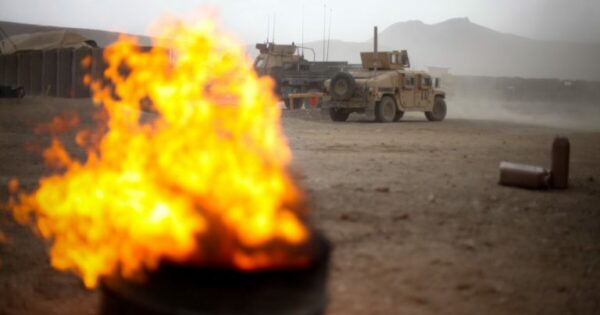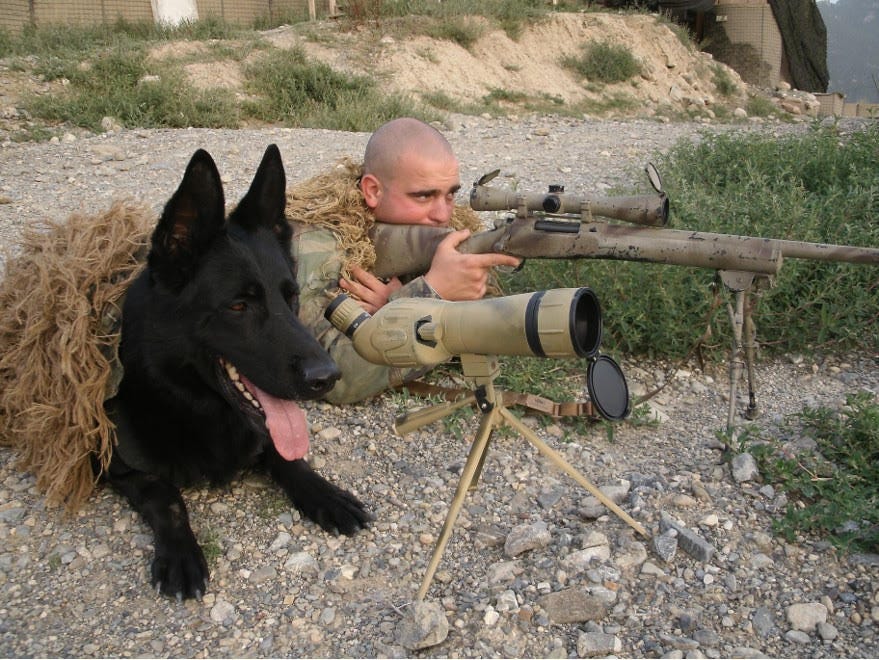IAVA | June 21, 2021
Veteran: Afghanistan’s toxic burn pits left me staring down the barrel of a death sentence

The cancers and health impacts veterans of the wars in Iraq and Afghanistan face because of our military’s burn pits are my generation’s Agent Orange.
This piece was originally published by the USA TODAY publication on June 20, 2021.
Why am I still alive? How have I survived this long? Those are the questions on my mind four years after being handed a death sentence in the form of Stage IV colon cancer. A death sentence rendered a month before my son’s first birthday. After years of fighting to survive, the moment I’ve dreading came to be – chemotherapy stopped working. My fight is not over, though. I’m still fighting, because I’ve realized the legacy I can leave behind.
I’m a Vermont Army National Guard veteran, who completed combat deployments to Iraq from 2005 to 2006 and Afghanistan in 2010. One thing they had in common was inescapable smoke emitted from burn pits outside the base where we lived. I still remember the oxygen being sucked from the air as burn pit smoke engulfed everything in its path.
Burn pits are giant trash piles in which food, human and medical waste, heavy metals, Humvees, and everything else are discarded, coated with diesel and jet fuel, then ignited.
“Delay, deny, hope you die.” That was a common aphorism used by Vietnam veterans to describe the way the Department of Veterans Affairs (VA) treated them upon their return home from a war that exposed millions of them to an herbicide that needs no introduction: Agent Orange. Decades later, the consequences of Agent Orange are still unfolding, and exposure has cost hundreds of thousands of lives. Instead of learning from the past, the VA seems content to sit idly by while a new generation of veterans die from the health effects of our generation’s Agent Orange – burn pits.
I deserved better care
I’ve survived this long because of my desire to fight, not on the battlefield, but in the courtroom in the hopes of causing real change to prevent one other person, one other family, from suffering the same fate as me and my family.

I’m suing the U.S. government because of the medical treatment I received from my local VA medical center. You see, after completing two combat deployments, I turned to the VA for medical care. And it failed me.
When I first went to my local VA medical center in 2013, I complained of diarrhea multiple times a day since my deployment to Afghanistan. I also complained of bloody stools, waking up multiple nights a week to use the bathroom, and losing significant weight in Afghanistan.
I was diagnosed with irritable bowel syndrome, which, at the time, brought me solace since it explained my symptoms, or so I thought. Unfortunately, the physician to whom I entrusted my care, did not consider any other treatment plans or causes of my illness. Several years and appointments later, I went to the emergency room in 2017 after an especially bloody bowel movement. A colonoscopy was finally ordered, but it was too late. My cancer was terminal.
I was 31 years old. My wife had just given birth to our son. My happily-ever-after was ripped from me, and was transformed into the hardest fight of my life, one I won’t win.
The VA has not made that fight any easier. To obtain disability benefits, it forced me to prove that my cancer was caused by burn pits; it put the burden of proving burn pits cause cancer on me while I was fighting for my life. Talk about a backwards system. But, I won that battle. Then, after I filed a medical malpractice claim, the government argued that I was too late. It even tried to have my case dismissed, disposed of like the trash torched in burn pits.
Prevent one more death
Luckily, my case is still ongoing. But I’m not fighting for myself. I’m fighting for proper, environmentally appropriate health care for those exposed to burn pits. I hope my lawsuit and the work of veteran service organizations, such as the Iraq and Afghanistan Veterans of America, which has helped promote my cause, ultimately result in the VA acknowledging the harmful health effects caused by burn pit exposure.
Congress is currently reviewing 15 bills on burn pits and toxic exposures. But, the VA asked Congress to hold off on any legislative reform until they complete their internal review. This would delay what could be the biggest congressional health care push in years. “Delay, deny, hope you die.” It is time we tell the VA enough is enough.
How many must die before the VA acts to address the harmful health effects being suffered by those exposed to burn pits? How many husbands and wives must be widowed? How many children left without a parent? Diseases don’t wait and neither should the efforts to address them. While it may be too late for me, it might not be too late for the next soldier. But the VA must act now. No more delays. No more denials. No more hoping our veterans die so its problems can be swept under the rug.

And so, I’m calling the VA to recall their request to Congress. It is time we come together to address the health effects caused by burn pit exposure. It is time the VA develops a system of care dedicated to serving veterans exposed to burn pits, so they may be cared for by physicians with the necessary expertise, not a resident who has not heard of the cause of their illness.
A great start would be passing into law what’s known as the Warfighters Act, a comprehensive, bipartisan bill establishing new benefits for veterans suffering health conditions caused by toxic exposures.
When I signed up to fight for my country, I never expected the institutions established to protect me would be to blame for my death. What this issue cost me and my family, could have been avoided. But I am just one of many going through the same plight and if my story can prevent families from losing someone they love, I will fight till my dying breath.
Wesley Black is a former infantryman in the Vermont Army National Guard.





